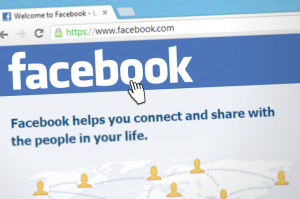The Solomon Islands might join the ranks of North Korea, Iran, and China by becoming the most recent country in the world to ban Facebook, the world’s largest social networking site, used by 2.6 billion people in 190 countries.
The submission for the ban, which was agreed on by the Cabinet on Tuesday but has not come into effect yet, was brought forward by Prime Minister Manasseh Sogavare and Communication Minister Peter Shanel Agovaka. They cited a need for stricter cybercrime legislation and regulation.
Agovaka told the Solomon Times that the ban is needed because there are no laws or regulations on Facebook.
“The use of the internet now in Solomon Islands needs to be properly regulated to safeguard our young people from harmful content. At the moment there is no legislation to govern the use of the internet and even young adults can be able to download harmful stuff from the internet,” he said.
Agovaka said the ban is in response to online attacks on members of government, citing the “abusive language against ministers and the Prime Minister” and “defamation of character” found on the platform.
Opposition MP and foreign relations committee chairman Peter Kenilorea Jr. said the ban on Facebook should be condemned by all freedom-loving Solomon Islanders.
“If true, the planned ban or suspension of [Facebook] by Cabinet is a direct and brazen assault on the freedom of expression in Solomon Islands which is guaranteed by the country’s own national constitution, ” he said. “Cabinet is now strangling the very right it should be upholding.”
Rights groups have said the ban on Facebook over criticism of the government is a brazen attack on freedom of expression.
“To ban a social media site simply because people are posting comments the authorities don’t like is a blatant and brazen attack on human rights,” said Amnesty International’s Pacific researcher, Kate Schuetze. “Protecting the sensitivities of government officials is not a justifiable reason to limit freedom of expression, which is also a right under the Constitution of the Solomon Islands.”
“If the Solomon Islands Cabinet has any respect for people’s rights, it should urgently rethink its decision to ban Facebook and allow everybody to peacefully express their opinions online,” she said.
Agovaka said, though, that the ban was not an attack on freedom of expression, and that the freedom of the press was still protected. The right to freedom of expression includes the right to be critical of a government and its policies.
The only countries in the world to already have a direct ban on Facebook are China and Iran, while the internet in general is heavily restricted in North Korea, with few people having direct access. Just yesterday, Vietnam threatened to shut down Facebook if it does not bow to government pressure to censor more local political content on its platform, reported Reuters.
Other Pacific Island nations have flirted with the idea of a Facebook ban before. In July 2020, Samoan Prime Minister Tuilaepa Sailele Malielegaoi said he was looking seriously at banning Facebook in his country, after many people had complained about how the social media platform was being used to hurt people.
“I am thinking about this a lot, especially how it is being used to make defamatory statements about others,” he told TV1 Samoa, adding that he, too, has been a victim of personal attacks on Facebook, citing a recent example of having sued a prominent Samoan blogger, who admitted in court that his statements were fabricated to make people hate the prime minister.
“This is being used by people who play what I call dirty politics,” Tuilaepa said.
The government of Nauru banned Facebook in 2015 as part of a strategy to block access to pornography but former Nauruan President Sprent Dabwido told the Guardian at the time that the ban was “so that the Nauruan people couldn’t criticize them.”
Amnesty International said the government of Nauru banned Facebook between 2015 and 2018 after it came under intense international scrutiny for its treatment of refugees and asylum-seekers, and for criminal charges against opposition parliamentarians.
Papua New Guinea also banned Facebook for a month in 2018, in what the government said was a bid to crack down on “fake users” and study the effects the platform was having on the population.
The Solomon Islands ban has not yet come into effect. Agovaka told the Solomon Times that “the government is still in discussion with the operators to work out how this can be done” while critics of the ban have said they will continue to urge the government to reverse the decision.

































